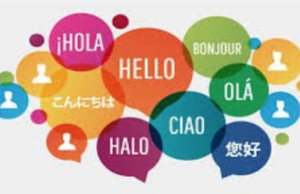World languages prove as essential

Despite the fact that language classes are difficult, they’re probably the one part of high school that will leave you with a marketable skill. Being bilingual is growing in value, according to 2017 data by Burning Glass Technologies, a labor market analytics firm. The demand for bilingual workers has more than doubled in the past five years.
Our economy is quickly globalizing, and it’s extremely important to have employees who can accommodate foreign customers and clients. English is the most widespread language, and therefore the best to learn, but Mandarin follows closely behind.
Mandarin has over one billion speakers across the world, and China is on the route to becoming the world’s leading economy. For anyone who’s ever bought anything ever, that shouldn’t be a surprise. China manufactures just about everything. For American businesspeople, Mandarin is useful because it can give them an upper hand when it comes to negotiating and befriending their Chinese business partners.
Unfortunately for those who wish to learn it, Mandarin is a pretty difficult language to learn. Fluency takes roughly 2,200 hours to attain, meaning that if you practised two hours each day, it would still take you over three years. If you practised five hours daily, you’d learn it in about 15 months. Mandarin also has about 50,000 characters, and you’ll need to learn 2,000-5,000 to be able to do something as simple as read a newspaper.
The third most important language is probably Spanish, which is spoken in 20-some Latin American countries, and, of course, Spain. It has over 420 million speakers, and compared to Mandarin, it’s easy to learn. Though numbers vary from source to source on how long it takes to become fluent in Spanish, most land somewhere around 500, which is about a quarter of the time it takes to learn Mandarin. Spanish is also taught in many U.S. high schools, making it significantly easier to learn.
If you’re learning a language purely to increase your earnings, Spanish is not your best bet. According to the Economist, Spanish fluency boosts earnings by 1.5 percent, while French gains a 2.3 percent bonus and German, a 3.8 percent increase in earnings. German is understandable, as it’s one of Europe’s economic powerhouses, but French?
Shockingly, French is pretty useful. France is the world’s third leader in foreign investment, not to mention its fifth largest economy. And French isn’t only spoken in France. Canada, which has the 10th largest GDP in the world; Switzerland, which is a world leader in business; and several parts of Sub-Saharan Africa, which have a higher GDP growth than the world as a whole, also speak French.
And the value in learning a language isn’t only in having it as a skill; it’s in gaining a new perspective. When you learn a new language, you gain a new way of looking at the world. Being able to read Arabic gives one the ability to read Egyptian novels; being able to speak Japanese gives one the ability to communicate with people living in Japan.
Language allows us to relate to people who may live hundreds of thousands of kilometers away, to understand the perspectives of people with whom we ordinarily might be able to empathize and to connect in a world that is hellbent on dividing us.









You must be logged in to post a comment Login